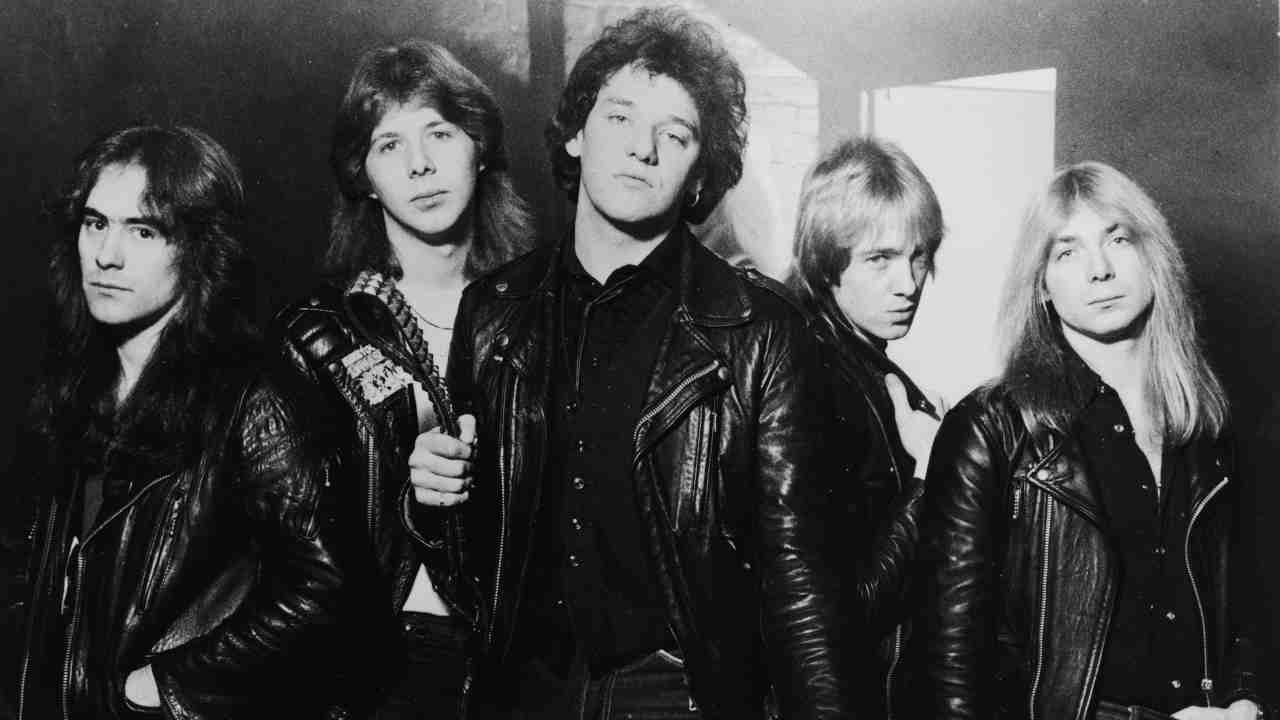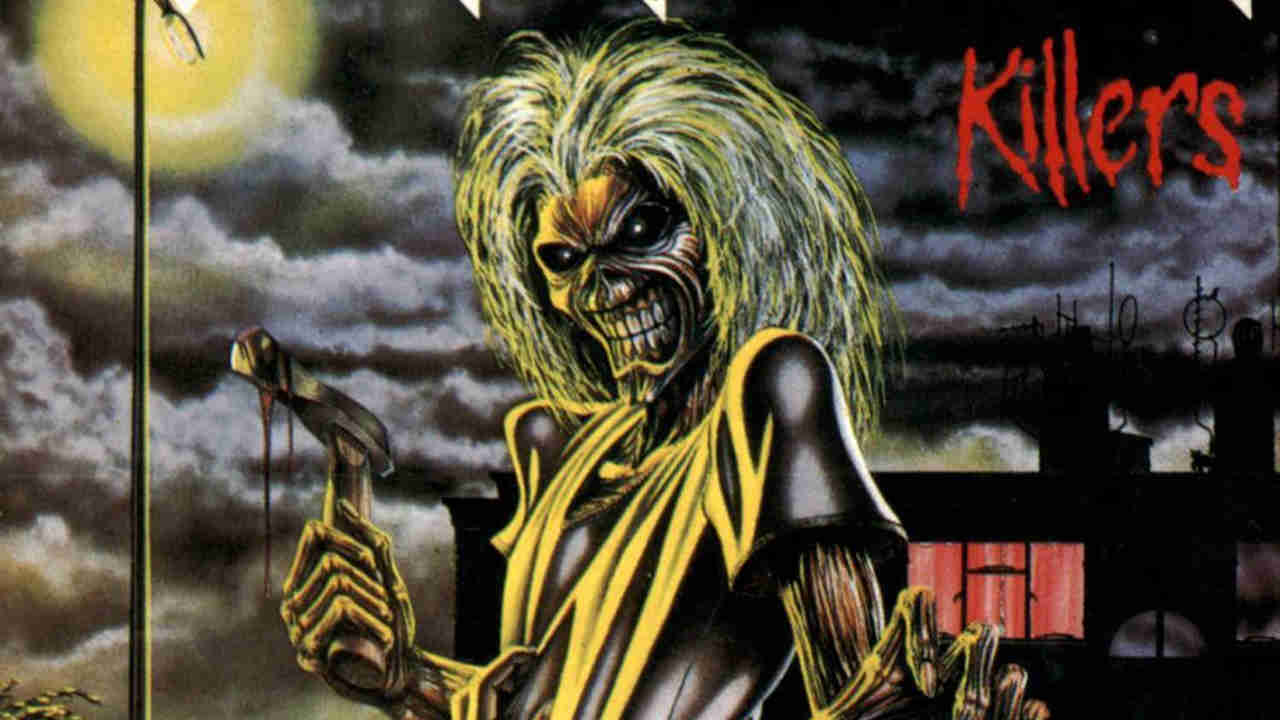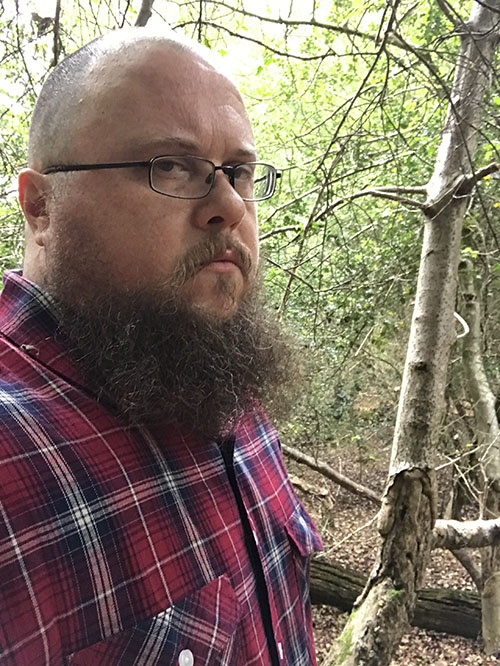Iron Maiden found themselves at a tipping point in 1981. Bassist and bandleader Steve Harris had spent five years leading innumerable line-ups around the UK toilet circuit, manfully flying in the face of prevailing punk, mod and new wave trends while struggling to assemble a group of dedicated musicians who could help make his ambitious vision a reality.
Even after Maiden’s debut album went straight into the UK chart at No.4 on its release in 1980, the fine-tuning and rejigging of personnel had to continue. Guitarist Dennis Stratton – almost pushing 30 and rather too fond of The Eagles and 10CC for Steve and Maiden manager Rod Smallwood’s liking – was given his marching orders, replaced by Dave Murray’s old schoolfriend and one-time bandmate Adrian Smith.
Smith had already been invited to join Maiden in 1979, but he was committed to nurturing his own estimable outfit Urchin. A year later, with that band in disarray, he wasn’t about to reject Maiden a second time. His recruitment marked the arrival of Maiden’s first truly classic line-up. Within a few weeks, he and his new bandmates – Harris, Murray, singer Paul Di’Anno and drummer Clive Burr – were working on Maiden‘s second album, Killers – a dramatically transitional work, but one that would point the way to future glories.
The new guitarist was publicly introduced at a gig at Brunel University in Uxbridge on November 21, 1980. A fortnight later, Maiden re-entered Battery Studios in Willesden, North London with Smith in tow to record their new album.
He wasn’t the only new face. Behind the mixing desk was Martin Birch, the illustrious producer who had worked with Deep Purple, Rainbow, Blue Oyster Cult and other heavyweight 70s names. Harris later said he would have approached Birch to produce Maiden’s debut, had had he not assumed Martin was too much of a veteran big-shot to twiddle knobs for such humble hopefuls.

For Smith, already nervous about joining such a well-established band, Birch’s engagement ramped up the tension. “He was great, but he was a bit intimidating at first, because he had this big reputation,” Smith told eonmusic in August 2020. “I mean, I could hardly eat in the week leading up to going in the studio.”
He need not have worried. His meticulous melodic contributions, together with Birch’s assured production, dovetailed perfectly with Harris’ vision for the band. Yet most of the songs that would appear on the finished album had been hanging around setlists since 1976 or ’77. Two songs, Innocent Exile and Wrathchild, were even older – they were among the first things Steve Harris had ever written, circa 1973.
Wrathchild had been recorded and released on EMI’s 1980 sampler Metal For Muthas – and was held off the debut for that reason – but the far superior new version would prove to be definitive, and showcase what this new iteration of the band were capable of.
Punchy, tried-and-true live staples Another Life and Purgatory (previously entitled Floating, when it sounded a lot funkier) remain textbook exemplars of the New Wave Of British Heavy Metal at its most succinct and spunky, while long-time set closer Drifter is surely the Maiden song most deeply embedded in the 70s, with its chirpy riff, carefree vibe, bluesy boogie tendencies and cutesy teenybopper lyrics ('What you feeling when you hold me tight? I’m gonna cuddle up with you tonight').
Meanwhile, Prodigal Son – the only Di’Anno-era song never played live – found Maiden at their most diverse and experimental, brewing up a mellow, semi-acoustic prog-folk mini-epic with hazily occult lyrics ('Devil’s got a hold of my soul, he’s driving me mad') pointing the way to the Satanic panic of 1982’s The Number Of The Beast. Sometime bonus track and contemporary single Twilight Zone – hurriedly self-produced by the band when Martin wasn’t looking – was a frantically wired neck-wrecker, its breathless verses and ascending falsetto screams proving useful for testing Bruce Dickinson’s mettle at his secret audition in September ’81.
Tellingly, the two songs specifically written for the LP are among Maiden’s all-time finest: compulsive, sophisticated Poe-inspired singalong Murders In The Rue Morgue and the graphically scintillating Killers itself, which perfectly evokes the experience of being stalked, chased and slashed by a nutter in a subway.
As Harris hoped, Birch successfully captured and bottled the new line-up’s energy, excitement and bubbling chemistry, gifting Maiden the big-league sound that the bassist always dreamed of. Smith and Dave Murray’s twin guitar partnership instantly found its feet, Paul Di’Anno’s valedictory vocal performance overflowed with attitude and personality, and the album was defined as much by the bouncing tom patterns and rapid-fire hi-hat of Clive Burr as it was Harris’s lightning-fingered bass runs.
Not everyone was so impressed with the album when it was released on February 3, 1981. British music weekly Sounds gave Killers a shockingly mean-spirited one-star drubbing, critic Robbi Miller declaring it “more of a failure than a triumph”. Harris noted that Miller had dated, and been dumped by, Di’Anno not long before, although he conceded that early review copies were sent out with an inferior mix.
The disappointment was mirrored by its initial chart placing. Where the debut had reached No.4 in the UK, Killers slipped in at a disappointing No.12 – the lowest placing for a new Maiden studio LP until 1998’s Virtual IX. More than 30 years later, Paul Di’Anno himself retrospectively stuck the knife into the album. “I don't like Killers,” the singer revealed in French-language book L'épopée des Killers in 2005. “I think it’s not up to the height of the first album. Don't ask me why. We all worked like crazy, but it didn't have the magic of the first.”
Di’Anno’s view could have been coloured by the fact that Killers would be the last album he recorded with Maiden. The wayward frontman’s drink and drug intake began compromising his performance on the subsequent tour, and by Autumn 1981 he was out of the band, leaving Steve Harris to look for another singer.
Di’Anno’s replacement would, of course, be Bruce Dickinson. His arrival in time for the band’s third album, The Number Of The Beast, marked the beginning of what would arguably be Maiden‘s most significant chapter – a period that saw them transformed from plucky but determined upstarts into a force to be reckoned with.
Today, Killers occupies a unique place in the Maiden canon. The textbook ‘difficult second album’, it’s beloved by connoisseurs but not widely revered like the albums either side of it. Yet if it could ever be termed a disappointment, it’s only in comparison to what came after it. For Iron Maiden themselves, it represents the most dramatic transition of their illustrious career, and a key stepping stone to what came next.

